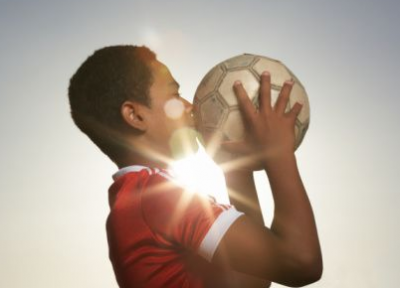Passion in Sport: On the Quality of the CoachAthlete Relationship.

Journal of Sport and Exercise Psychology, 2008, 30, 541-560
2008 Human Kinetics, Inc.
Passion in Sport: On the Quality of the Coach-Athlete Relationship.
Marc-André K. Lafrenière,1 Sophia Jowett,2 Robert J. Vallerand,1 Eric G. Donahue,1 and Ross Lorimer2
1Université du Québec à Montréal and 2Loughborough University Vallerand et al. (2003) developed a dualistic model of passion, wherein two types of passion are proposed: harmonious (HP) and obsessive (OP) passion that predict adaptive and less adaptive interpersonal outcomes, respectively. In the present research, we were interested in understanding the role of passion in the quality of coach-athlete relationships. Results of Study 1, conducted with athletes (N = 157), revealed that HP positively predicts a high-quality coach-athlete relationship, whereas OP was largely unrelated to such relationships. Study 2 was conducted with coaches (N = 106) and showed that only HP positively predicted the quality of the coach-athlete relationship.
Furthermore, these effects were fully mediated by positive emotions. Finally, the quality of the coach-athlete relationship positively predicted coaches' subjective well-being. Future research directions are discussed in light of the dualistic model of passion.
Keywords: passion, coach-athlete relationship, positive emotions
Lately, sport psychologists have expressed a growing interest in the coach-athlete dyad (Jowett & Poczwardowski, 2007; Mageau & Vallerand, 2003). Mutual trust, respect, and support are deemed among the main aspects that contribute to satisfying and successful coach-athlete relationships (Jowett, 2007; Jowett & Cockerill, 2003; Poczwardowski, Barott, & Peregoy, 2002). Still, one is left wondering about the psychological factors that allow both athletes and coaches to experience high-quality coach-athlete relationships. We posit that passion (Vallerand et al., 2003) corresponds to such a psychological factor. Indeed, if both the coach and the athlete are passionate toward their sport, this could lead them to develop a positive coach-athlete relationship at the very least because they share a love for their activity and may both fully devote themselves to reach high levels of performance. Thus, the purpose of this article was to investigate the role of passion in the quality of coach-athlete relationships.
Lafrenière, Vallerand, and Donahue are with the Département de Psychologie, Laboratoire de
Recherche sur le Comportement Social, Université du Québec à Montréal, Montreal, QC, Canada;
Jowett and Lorimer are with the School of Sport & Exercise Sciences, Loughborough University,
Loughborough, U.K.
0 comentarios